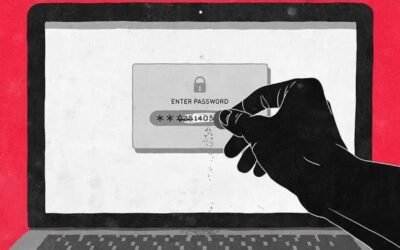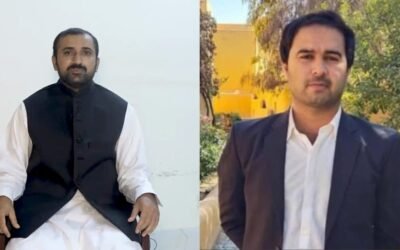Understanding the Global Movement: How Fact-Checking Became Journalism’s New Frontier
Fact-checking is not just a corrective tool, it is a necessary counterbalance to how human psychology and digital systems interact. In an age where algorithms reward speed and sensationalism over truth, people are naturally drawn to emotionally charged or affirming content, even if it’s false. This is not simply a technological flaw, but a cognitive one. We share what feels true before we verify what is true. As a result, disinformation can travel further and faster than corrections, shaping public opinion, fueling division, and distorting collective memory. Whether it is a fabricated political quote or a manipulated image during a flood, the damage is often done by the time facts catch up.
Fact-checking, therefore, is not just about rebuttal, it is about slowing down the spiral, anchoring discourse in evidence, and preserving reality in a world increasingly shaped by viral falsehoods. Without it, societies risk operating on emotion, hearsay, and manipulation rather than reason, context, and truth. With the explosion of digital misinformation, fact-checking has evolved from a journalistic supplement to a core public service.
The International Fact-Checking Network (IFCN), founded by the Poynter Institute in 2015, has set global benchmarks on transparency, corrections, and non-partisanship. It now oversees over 180 certified organizations, including AP Fact Check, Reuters Fact Check, and Africa Check. These bodies use structured processes, identifying claims, sourcing, verification through public databases, and publishing accessible corrections, to preserve public trust.
Projects like Verificado 2018 in Mexico demonstrated the power of citizen participation, where WhatsApp-based submissions helped debunk viral election-related hoaxes in real time. Machine-learning tools like Hoaxy and Reuters Tracer also offer scalable misinformation detection by tracking how fake narratives spread, especially across platforms like X (Twitter) and Facebook.
The Pakistani Context: Emerging Fact-Checking Initiatives and Their Growing Relevance
In Pakistan, fact-checking is a relatively recent but growing field, responding to an urgent need for information accuracy amid political instability and media polarization. Notable projects include:
- Geo Fact Check (est. 2022): A project by the Mir Khalil ur Rahman Foundation, operating within Geo/Jang Group, provides structured verification of social media content and political claims.
- AFP Pakistan & Soch FactCheck: Two fact-checkers that meet IFCN standards and produce Urdu- and English-language fact checks.
Despite this progress, a Media Matters for Democracy (MMfD) 2023 survey found that 46.7% of Pakistani journalists had never received training in fact-checking, and only 28.6% used verification tools, a severe capacity gap in a volatile information ecosystem.
Roadmap for Pakistan Based on International Models
To enhance Pakistan’s fact-checking ecosystem, several international best practices offer valuable models. Firstly, adopting standardized editorial protocols such as veracity labels (“False,” “Partly True”), transparent corrections, and source citations as used by Reuters Fact Check can improve public accountability and clarity. Crowdsourcing verification, exemplified by Mexico’s Verificado initiative, allows citizens to flag disinformation in real time, a model well-suited to Pakistan’s politically charged media environment. Integrating early detection technologies like Hoaxy or ClaimReview can also help local outlets monitor and counter viral falsehoods proactively.
Additionally, fostering cross-border collaboration similar to the EU DisinfoLab, across South Asia could facilitate shared debunking strategies and regional media literacy. To operationalize these improvements, Pakistani fact-checkers must pursue IFCN accreditation, which would unlock access to global funding, training, and platform partnerships. Expanding the Meta–IFCN digital verification curriculum through journalism studies, and platforms like the Pakistan Press Foundation (PPF) can help build local capacity.
Collaborative models, like the 2025 Sindh government initiative with Karachi’s business sector to fact-check economically sensitive viral content, demonstrate how public-private cooperation can combat misinformation effectively. Lastly, academic partnerships can aid in localizing global tools such as TrulyMedia and ClaimBuster into Urdu and regional languages, ensuring broader accessibility and impact across Pakistan’s diverse provinces.
Learning from International Models: Tools and Practices Worth Adopting
To strengthen Pakistan’s fact-checking ecosystem, local actors can adapt several international best practices:
1. Standardized Editorial Protocols and Transparency Labels
Global models like Reuters Fact Check provide clear veracity labels (e.g., “False,” “Partly True”), correction notices, and sourcing data practices that increase public accountability and editorial clarity.
2. Public Tip Lines and Civic Participation
Crowdsourcing verification efforts, as Mexico’s Verificado project showed, can help detect disinformation in real time, especially during national elections or emergencies.
3. Technology Integration for Early Misinformation Detection
Simple integrations of platforms like Hoaxy or ClaimReview can help Pakistani outlets monitor online narratives before they explode virally.
4. Cross-Border Collaboration in South Asia
Pakistan’s information environments, and disinformation trends, are similar to its neighbors like India, Bangladesh, and Sri Lanka. A regional alliance modeled after the EU DisinfoLab could support coordinated debunking, content monitoring, and tech development. However, for this plan to materialise India must first discard the state-funded organisations working to deliberately spread misinformation, and fake news.
Strengthening Local–Global Fact-Checking Partnerships in Pakistan
To move beyond reactive debunking, Pakistani fact-checkers need long-term alliances, funding, and institutional recognition. Here are four actionable steps:
1. Pursue IFCN Certification for Local Fact-Checkers
Organizations like Geo Fact Check, Soch, and Fact Check Pakistan should seek IFCN accreditation, enabling access to international grants, platform support (Meta, TikTok), and global editorial training.
2. Expand Meta–IFCN Fact-Checking Curriculum
Pakistan’s participation in the Meta–IFCN Digital Verification Training (launched in April 2023) can be scaled through journalism schools and civil society partners like the Pakistan Press Foundation (PPF).
3. Foster Private Sector Collaboration
The Sindh government’s 2025 pilot with Karachi businesses to verify viral content affecting economic perception offers a replicable model for wider media–private sector cooperation.
4. Partner with Academia for Research and Tool Development
Local universities, in collaboration with fact-checkers, can adapt global detection tools like TrulyMedia or ClaimBuster to other languages like Urdu or Punjabi diverse language environments, which will ensure scalability across provinces.
Conclusion: Building a Resilient Information Ecosystem
Pakistan stands at a critical crossroads in the battle against misinformation. While the foundations of fact-checking exist, their success hinges on scale, trust, and collaboration. International standards and tools can offer guidance, but localized adaptation, institutional support, and cross-sectoral commitment are essential for long-term credibility. In the age of information warfare, investing in fact-checking is no longer optional, it is the backbone of any healthy democracy.



























